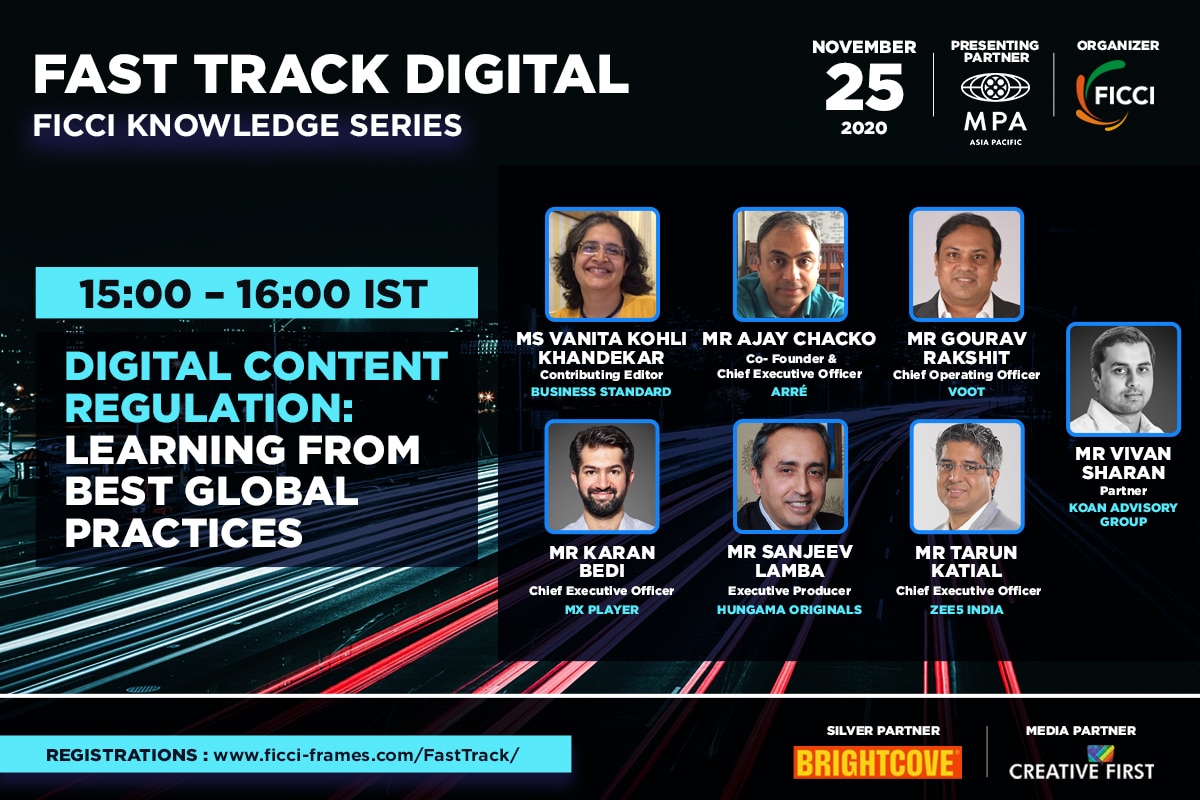
Moderating the session ‘Digital content regulation: Learning from best global practices’ at FICCI’s Knowledge Series FAST TRACK DIGITAL, organised by FICCI and presenting partner, the Motion Picture Association, Ms. Vanita Kohli Khandekar, Contributing Editor – Business Standard, said in her opening remarks that while bringing OTT under the Ministry of Information & Broadcast is a perfectly logical and expected move, it is necessary to know what consequences the industry might expect from the change.
The panel agreed that there needs to be regulation, and that having clear guidelines in regulation is desirable to all. However, Mr. Ajay Chacko, Co- Founder & Chief Executive Officer, Arré, said that it was important to not regulate with the sole aim of establishing parity between two mediums – such as broadcast television vs VoD.
Mr. Tarun Katial, Chief Executive Officer, ZEE5 India, and co-chair for Internet and Mobile Association of India (IAMAI), said that the government has always encouraged the industry to come up with a self-regulation code and has also been supportive of content diversity. He added that 80-90% of the industry members have agreed to, and signed, the code. “I think we have to see the government in the light of the support it has given to this sector and let it flourish to this point”, he concluded. Mr. Karan Bedi, Chief Executive Officer – MX Player, agreed that the discussion has come a long way and it’s only a matter of time when it comes up with a standard accepted by all.
Mr. Gourav Rakshit, Chief Operating Officer, VOOT, said that the ability to narrowcast an audience allows the industry to provide content that is consistent, and the code takes the existing frameworks forward, not a step backwards. There is a need to centralise so that there is uniformity. Taking responsibility while telling impactful stories is very important.
Mr. Sanjeev Lamba, Executive Producer, Hungama Originals, pointed out that having an informed audience, free to make their own choices, was as important as establishing clear and consistent guidelines in self-regulation.
Mr. Vivan Sharan, Partner – Koan Advisory Group, said that the industry needs to ensure that the code doesn’t limit creative freedom, but furthers it. He added that while there is no question that minors need to be protected from harmful content online, when it comes to adults, the state needs to look at who the reasonable average person in India is and what will offend them. This should be done before creating a negative list of exceptions for everything that should be allowed for adults.
When asked if statutory approval for a self-regulation code make sense, Mr. Katial responded that the government needs to be satisfied that the self-regulation code the industry comes up with works, so that they won’t have to step in to regulate, argue in a court of law, or interfere in its implementation.
Ms. Vanita Kohli Khandekar concluded by saying that in the end what matters is quality content reaching audiences and the hope is that it continues to happen.